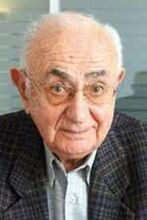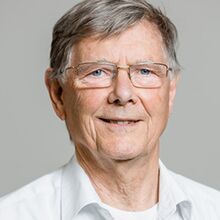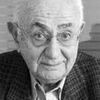Celebrating ESWI 30 years!
Claude Hannoun, Ab Osterhaus, Colin Russell
Who would have taken virus isolation for granted 30 years ago? How and why did ESWI transform from a pure virology-based network to one encompassing a public health perspective?
Join the journey listening to the former, current and future Chairs of ESWI, professors Claude Hannoun, Ab Osterhaus, and Colin Russell reminisce about the past, muse over how ESWI has evolved, and predict where we are heading.
Science has advanced significantly. This is a fascinating account and listening to the different perspectives and challenges the three Chairs have and will experience in the field of acute respiratory viruses is truly inspirational.

Dr. Hannoun’s education includes a Ph.D. in Microbiology, which he earned in Paris, France.
Dr. Hannoun is an expert at the WHO (viral diseases). His former positions include: Director of the National Influenza Reference Centre, Professor at the Pasteur Institute, Associate Professor at the Université of Paris VII, Scientific Director of GROG systems (Groupes Régionaux d’Observation de la Grippe), Director of the WHO Collaborating Centre for influenza and other respiratory viruses, Honorary Professor at the Pasteur Institute and Vice-President of ‘Société Française de Microbiologie’. He was Co-Founder and Chairman of ESWI from 1992 until 1998. He was Co-Organiser of the Conference ‘Options for the control of influenza II’ Courchevel in December 1992, the Conference “Options for the Control of Influenza IV” in Crete in 2000 and of the “First European Influenza Conference” (ESWI) in Malta in 2002. He was also Editor-in-Chief of the ‘European Journal f Epidemiology’.
Dr. Hannoun’s scientific activities are mainly oriented towards virological and epidemiological studies on arboviruses and influenza. The activity of several arboviruses so far unknown in France has been demonstrated as having occurred between 1960 and 1975, the most important being the West Nile virus. During the following years, national and international development of surveillance networks (GROG) for early detection of influenza epidemics and applications in the field of control of influenza (vaccines and antivirals) and other respiratory viral infections have been major subjects of interest, together with research programmes on virus structures. He pays special attention to infections caused by influenza virus type C and on the characteristics of this little known virus. Further studies in the field of influenza include evaluation of immunisation adjuvants, antiviral screening and tissue culture vaccines in addition to the epidemiological surveillance of respiratory viral infections.

Position: Founding Director of the Center of Infection Medicine and Zoonosis Research and Guest-Professor at the University of Veterinary Medicine Hannover.
Research fields: Virus infections of humans and animals.
Professor Osterhaus is the Founding Director of the Center of Infection Medicine and Zoonosis Research at the University of Veterinary Medicine Hannover, Germany, and cofounder/CSO of Viroclinics-DDL BV (currently part of CERBA) and ViroNative BV (both spin-outs of Erasmus MC) and CR2O. He was head of the Department of Viroscience at Erasmus MC Rotterdam until 2014.
He has a long track record as a researcher and project leader of numerous major scientific projects. At Erasmus MC, he has run a diagnostic virology lab with more than 40 staff and a research virology lab with over 150 personnel. His research programme follows an integrated “viroscience” concept, bringing together world-leading scientists in molecular virology, immunology, epidemiology, pathogenesis, and intervention studies for human and animal virus infections.
Among his major accomplishments are the discovery of more than 80 viruses of humans and animals (e.g. human metapneumovirus, coronaviruses, influenza viruses), elucidation of the pathogenesis of major human and animal virus infections, and development of novel intervention strategies. This has enabled health authorities like the WHO to effectively combat disease outbreaks like SARS and avian influenza. The established spin-outs are among his other societally relevant successes, allowing effective testing and refining of diagnostic tools and other intervention strategies.
Professor Osterhaus has acted as mentor for more than 85 PhD students and holds several key patents. He is the author of more than 1360 scientific papers in peer-reviewed journals, together cited > 90,000 times with an H index > 145. He holds several senior editorships and has received numerous prestigious awards. He is a member of the Dutch and German National Academies of Sciences, member of the Belgium Academia of Medicine, and Commander of the Order of the Dutch Lion.

Nationality: American, British
Position: Professor of Applied Evolutionary Biology, University of Amsterdam Faculty of Medicine
Research field: Virus Evolution
ESWI member since 2019
Colin Russell is a professor at the University of Amsterdam School of Medicine. His research focuses on the evolutionary dynamics of human respiratory viruses and the immune responses that control them. He has worked extensively on the within-and-between host evolution of influenza viruses, influenza virus vaccine composition, and issues related to diagnostic and sequencing resource allocation for virus surveillance. Professor Russell regularly advises a wide variety of international organisations, including WHO, on topics ranging from surveillance to pandemic preparedness, vaccine design, and test-to-treat programs. Colin is the Chair of the ESWI since 2023 and the Chair of the EU Steering Group on Influenza Vaccination since 2024.


